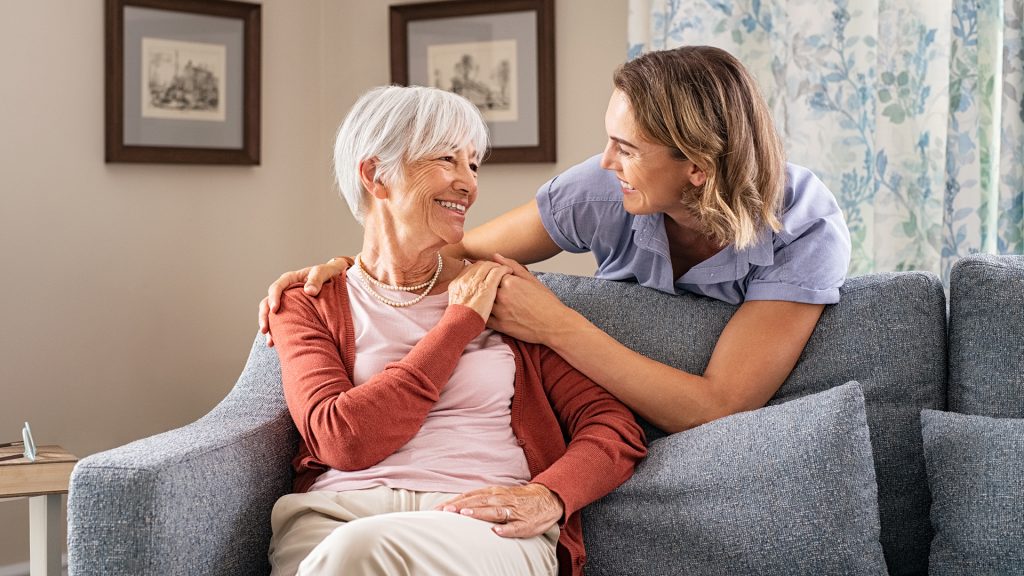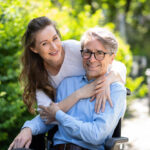
Holistic Elder Care, Sacramento
The American Holistic Health Association defines “holistic health” as “an approach to living that places equal value on the health of one’s mind, body, and spirit and works toward that end.” Taking charge of your health and making decisions on a daily basis that benefit you is an integral part of a more holistic approach. Integrating healthy habits into the fabric of your daily life is more important than focusing on illness and symptoms. Longevity, autonomy and health in old age can all benefit from this approach. More and more studies show that staying active, keeping your mind challenged, and making new friends can help you live longer by lowering your chances of getting sick or feeling down. According to a study conducted by the National Institute on Aging, older adults report feeling happiest when they are actively engaging in activities like socializing, working or volunteering, and exercising.
On-site fitness centers with classes, pools and even personal trainers make it easy to take care of your body, and the dining halls serve nourishing meals. Membership in a resident club or attending a community event is a great way to meet new people, broaden your horizons, and gain new perspectives. Additionally, many areas provide religious services, Bible studies, meditation courses, support groups, and/or onsite counselors to help residents maintain a sense of spirituality and emotional well-being. The decisions you make have a significant impact on your life and health. The good news is that you can always begin improving your life by choosing to do things differently.
Evolution of Wellness, California
The term “well-being” can refer to a variety of different concepts. Before the last few decades, clinical methods were typically used. This emphasized the idea that people are like machines, with separate parts that can be worked on independently. Instead of compassionate doctors, this method aided in the rise of the medical engineering profession. The “three square meals and a roof over my head” mentality apply here as well. If your body was operating at 100% under this system, you were considered to be in excellent health. When you were in that state, you were healthy. In order to assess your health, fundamental metrics like blood pressure and cardiovascular health were used. According to this medical theory, a person’s internal emotional life has no bearing on the health of their physical self. However, long-term care has developed over time, and the conventional method has been adjusted to reflect these changes.
Naturally, modern approaches to care for the elderly are more all-encompassing and grounded in reality. Our understanding and acceptance of the connection between our physical and mental well-being are based on this knowledge. An individual should be viewed and treated as a whole. Each person is also deeply connected to the community and network in which they find themselves. The community and surrounding group’s health depends on theirs. A holistic method of health care takes into account the whole person. Integrating all aspects of a senior’s life into a unified whole is the key to achieving holistic wellness. Ensure that all of these components—health, social interactions, cognition, activity participation, and eating and sleeping habits—are being cared for and, if possible, improved upon as a unified whole. The senior family member receives a more complete and positive sense of well-being from the holistic approach.
Seniors with disabilities have unique needs when it comes to their overall health and well-being. That’s why many facilities around the world that care deeply about their elderly patients have switched to this more modern, humane, and all-encompassing method of care. They are aware that the old ways of doing things are dead, or at least should be. The elderly and their families have rightly criticized this relic of the past. The elderly of today have come to expect and be entitled to better. All of the staff works together to ensure the residents’ health and happiness in a holistic care setting. The first step is to collect data on everything that could have an impact on a given local’s quality of life. The physical, environmental, emotional, social, and spiritual aspects of a person must all be taken into account. Caregivers formulate an improvement strategy after gaining a thorough understanding of the resident’s condition. For example, even if a resident’s physical health has not worsened, a change in social behavior may indicate that care is needed. Caregivers will step in if this happens.
Caregivers may try to help the resident meet new people by giving him or her more attention and encouraging participation in a variety of activities. If that’s the case, they’ll probably keep an eye out to make sure the problem is completely resolved for good this time. The best possible quality of life in old age can be achieved through the practice of holistic wellness because it addresses the whole person. If you’re feeling good, chances are your body is healthy. Reduced stress levels, improved sleep patterns, and functioning immunity are the results. Residents who are physically healthy are more likely to have rich social lives, as they are more likely to take part in a variety of activities and make new friends.
Jazba Care; Holistic Elder Care
One can give the impression of being fine on the outside while actually experiencing very different emotions, just like any grownup. Your health and well-being may suffer as a result. If a senior is feeling this way, they may become resentful or act impulsively. Group therapy provides seniors with a safe space to talk about their experiences, leading to enhanced care as a whole. Get in touch with a Sacramento, California, elder care manager from Jazba Care for more information or advice on supporting aging adults with disabilities.




